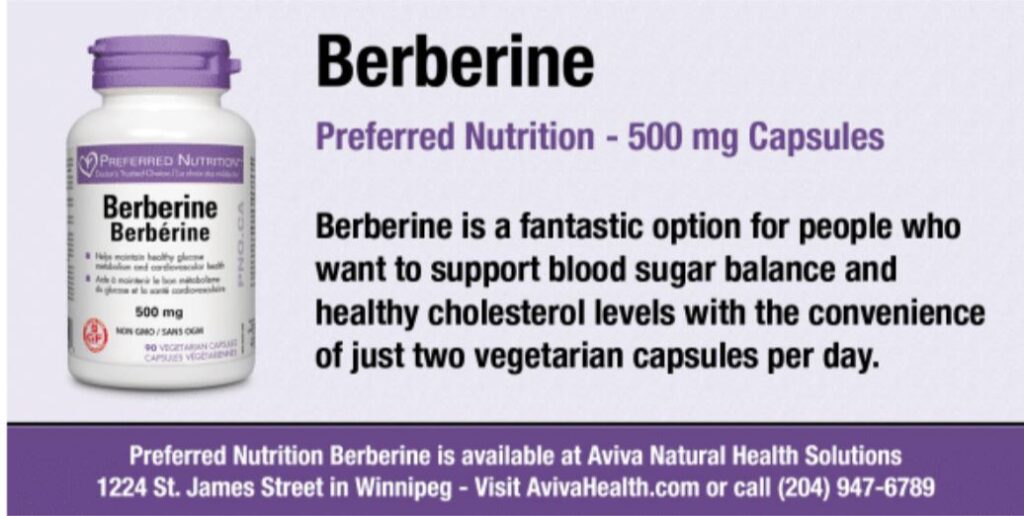Natural Health
Insulin is the hormone produced by the pancreas that moves blood glucose from the food we eat into our tissues and organs; it is needed for energy and a multitude of important functions. Insulin resistance (IR) is a physiological state where our cells become resistant to the effects of insulin and is an underlying cause of many serious health conditions.
The goal of this series of articles is to show how we can restore insulin sensitivity to our cells and help reverse IR. When our cells are more sensitive to the effects of insulin, the many health problems associated with IR can be reversed, bringing you the greatest potential for living a long, disease-free life.
While most people associate high blood glucose and high insulin levels with type 2 diabetes, before reaching confirmation of that diagnosis, a host of other problems may develop which should be a red flag that it’s time to correct the underlying cause of these problems by lowering blood glucose and insulin levels through lifestyle, diet, and supplements. Just about every health problem can be improved by correcting this one overarching cause.
While there are a number of dietary changes and lifestyle modifications to consider, in this installment I’ll outline the role sweeteners play, as well as some of the other substances we consume, and how they all can either contribute to insulin resistance or help correct it by improving insulin sensitivity. If you haven’t read the earlier parts, I recommend you go to avivahealth.com/zassman, as they contain important information and additional context.
Fructose
Sugar, high fructose corn syrup, honey, maple syrup, and agave all work to stimulate insulin production, but it’s the fructose component in these sweeteners that increases IR the most. Pure fructose (often used as crystalline fructose in health products), sugar (half glucose, half fructose), and high fructose corn syrup, all increase IR. Another problem is that these sweeteners also increase oxidative stress which can lead to cell damage and contribute to serious health conditions.
Fruit is naturally high in fructose, but if you consume the whole fruit, the fibre content lowers the insulin-stimulating effects of the fructose. But if you juice your fruit, you’re removing the fibre component and consuming pure fructose, so I do not recommend consuming fruit juices.
Natural Sweeteners
Natural alternatives that appear to be safer (that do not result in insulin production) include stevia (Reb M is the form that tastes most like sugar, without the strong aftertaste), yacon syrup, monk fruit, and allulose. Allulose is a monosaccharide that naturally occurs in foods including figs, raisins, maple syrup, and jackfruit. Check to ensure that monk fruit or stevia products are not blended with xylitol or erythritol.
Yacon syrup is interesting as it is rich in prebiotics, soluble fibre (also called FOS or fructooligosaccharides) that helps the body to produce bifidobacteria and lactobacillus. These probiotics can help reduce constipation and improve immune response. In addition, FOS fermentation in the colon can produce short-chain fatty acids (associated with lower rates of colon cancer) by suppressing inflammation.
Sugar Alcohols
Until recently, I had recommended the use of xylitol and erythritol as sugar substitutes. These are sugar alcohols that taste almost identical to sugar, but they do not cause the insulin response that sugar does. New research from the Cleveland Clinic has found a strong correlation between erythritol and an increased risk of heart attack and stroke, so I no longer recommend any sweetener with erythritol. Many monk fruit sweeteners are predominantly erythritol, so read the label carefully. Xylitol can be very effective as an ingredient in toothpastes, nasal sprays, and when used with salt in a neti pot for reducing bacteria in the nasal mucous membranes. However, I have found that it can disrupt gut bacteria when ingested, and some people who are sensitive to xylitol may experience diarrhea and irritable bowel syndrome.
Artificial Sweeteners
Many people believe that artificial sweeteners including sucralose, acesulfame potassium (Ace-K), cyclamate, saccharin, and aspartame are healthier alternatives to sugar, but a study found that those who drink artificially sweetened (diet) soda had a 67% higher risk of developing type 2 diabetes.
Resistant Starch
Resistant starches have a variety of health benefits including improving insulin sensitivity. The starch in foods like rice and potatoes that normally boosts blood glucose levels becomes resistant to digestion if it’s allowed to cool and then reheated. Resistant starch is a dietary fibre that alters the gut microbiota (the “good” bacteria in our gut), acting as a prebiotic to produce beneficial microbes including short-chain fatty acids, and butyrate. These microbes have a wide variety of benefits including lowering blood sugar and potentially reducing the risk of cancer. An easy way to add resistant starch to your diet is by consuming potato starch, a fine powder that can be added to water or smoothies.
Don’t Be Afraid of Salt
Salt is so often associated with hypertension that for decades medical professionals have been recommending we eat less salt. But studies have found that for those that have hypertension, restricting salt has no effect (blood pressure doesn’t drop). Insufficient salt is however highly associated with IR. In a recent study of over 150 men, those who restricted salt intake became more insulin resistant. When we restrict salt, our kidneys produce more aldosterone, a hormone that helps the body retain urinary salt (which is why blood pressure rises), but IR increases in the process.
Tobacco
Cigarette smoke exposure increases the risk of many chronic diseases, especially cardiovascular and respiratory. Dr. Gerald Reaven identified a relationship between smoking and IR over 20 years ago, and many studies have confirmed his research. In addition, second-hand smoke can produce ceramides, a class of lipid molecules that may contribute to smoke-induced IR. Nicotine (the primary addictive component in tobacco) causes our fat cells to be insulin resistant, and nicotine can also enter the body through patches and vaping.
Food Additives
Monosodium glutamate is a well-known (and controversial) flavour enhancer. One of the earliest methods used to make lab animals obese, MSG boosts insulin levels in response to glucose. Even small additive doses of MSG may contribute to the risk of developing IR and metabolic disorders. While there are traces of MSG that occur in some fruits and vegetables, the levels found naturally are quite low. Sugar, high fructose corn syrup, cornstarch, and maltodextrin (also from corn) are also routinely added to processed foods, so read labels carefully, as they can all contribute to IR.
Fasting vs. Starvation
Intermittent fasting and time-restricted eating are powerful tools that can lower IR, but it’s critical that you don’t cross the line and go into a state of starvation. Consuming insufficient food for long periods (as with eating disorders like anorexia nervosa or bulimia nervosa) can result in loss of lean muscle tissue, bone loss, organ damage, heart disease, diabetes, and cognitive problems.
Using Fat for Energy
With aerobic exercise, as your body adapts and you increase intensity, your muscles will start using fat rather than glucose for energy. I recommend researching high-intensity interval training (HIIT). You’ll learn how intermittent sprints, or simply walking, cycling, or rowing as fast as you can for short bursts of time can produce the same results as longer, lower-intensity exercise. You can use the same approach with resistance exercise, where you push yourself to failure for each set. It’s more work, but the results are worth it.
In the coming months, I’ll outline some of the important nutritional supplements that can help restore insulin sensitivity and reverse IR. When combined with the right diet and lifestyle changes, you’ll position yourself to feel better throughout the day and help prevent disease.
Nathan Zassman is the owner and president of Aviva Natural Health Solutions.



